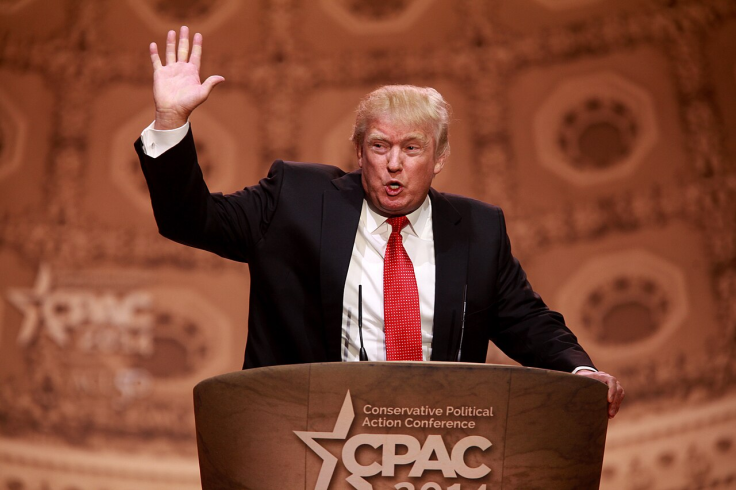Trump's Republican Platform Agenda47 Proposes Radical Overhaul of Higher Education Policies
ByThe Republican Party's manifold plans to reshape U.S. higher education were found in its 2024 manifesto, setting a bold platform for much of the recent political discourse.
This came after weeks of backroom dealings on a platform that would basically relaunch ex-President Trump's issues and pledges for major overhauls across several sectors, one of which is education.

Agenda47: A View for Education
A series of campaign statements collectively known as "Agenda47" outlined Trump's view for 2025 and beyond. It envisions a hard shove on conservative values in American education while states and families are given more control over educational decisions. Some key proposals include shutting down the Department of Education, reinstating prayer in schools, and establishing an American Academy that issues degrees at low costs. In return, it is to be financed by exacting financial penalties from institutions for not meeting Trump's ideological criteria.
He would resurrect school choice, constrain the teaching of LGBTQ+ content, and much more. These policies align remarkably with a sweeping 920-page policy playbook produced by the Heritage Foundation called Project 2025. The Heritage Foundation would not discuss details of Project 2025 when contacted about the topic.
The Weaponization of Accreditation
Accreditation has emerged as a source of regulatory power central to the educational agenda that Trump and his allies on the right tout. Done ordinarily as a pro forma requirement that institutions meet certain standards, the process of accreditation could be used to coerce schools into touting conservative values in higher education. Trump's narrative portrays the accreditors as accomplices to the "radical left," a characterization accrediting bodies all over the country reject.
Private companies that build up the system of higher education accreditation review institutions for fiscal viability and student learning outcomes, among other things, to ensure that quality education is provided. These reviews are non-political and individualized to the mission of each institution. Lawrence Schall, president of the New England Commission of Higher Education, said, "NECHE is very diverse and non-political. It accredits the spectrum that runs from the most conservative religious institution to the most liberal secular university and includes a military academy and a private university."
"Quality in higher education has been protected through accreditation for over a century," said Belle Wheelan, president of the Southern Association of Colleges and Schools Commission on Colleges. Trump's depiction of accreditation as motivated by politics misrepresents how the process works, according to Wheelan.
Affordable Alternatives and Accreditation Reform
At the core of the Republican agenda is a call for "drastically more affordable" alternatives in higher education. The program lies at the heart of alleviating this financial cost for students and their families by returning to what they have termed "classic Liberal arts education." It also calls for reform of the national accreditation process, which should remake, according to them, the existing system currently controlled by the "Radical Left accreditors."
Under such proposals, what has classically been an ideologically impartial process-accreditation-instituting education quality and financial stability would now be utilized towards further ideological single-mindedness. It may stifle the diversity of educational offerings and erode institutional autonomy by enforcing political litmus tests for funding eligibility at the federal level.
Reversal of Title IX Regulations and Reforms in Social Policy
Another highly controversial portion of the Republican Party platform was the reversal of President Biden's Title IX regulations. It labels those regulations aimed at further underpinning protections against sexual harassment and assault on American college campuses as overreaching, eroding due process rights. The rollback proposed aligns with broader condemnations of social-policy changes by progressives, including protections for transgender students that the platform designated as "left-wing gender insanity."
Implications for Academic Freedom and Institutional Autonomy
Academics themselves, much less outsiders in the political sphere, have had to raise intensifying concerns regarding the probable implications of such proposed reforms. As soon as it begins politicizing the accreditation system, it takes a dangerous turn, giving less regard to already marginal groups, hence affecting cornerstone tenets that sustain academic freedom and institutional autonomy in American higher education.
Experts, however, are of the opinion that this could have a chilling effect on intellectual diversity and critical inquiry in institutes of learning: a concern equally raised in history as political interference in educational institutions. Those are the expected outcomes: reduced levels of federal support to institutions that do not meet prescribed ideological standards, hence reducing choices and innovation in education.
With the anticipated 2024 platform endorsement, higher education proposed reforms stand to show just how out of touch Republican Party policies are with present trends. Supporters of the reforms think it is necessary to restore what they view as the forgotten ideals and values of fiscal responsibility to institutions of higher learning. Opponents warn that such reforms may basically transform American academia, along with its bastion of intellectual freedom and diversity.
The debate over these proposals is only going to escalate as the platform is examined and debated in the next weeks before the Republican National Convention. Their decision will influence not only the fate of higher education policy in the future but also the extent to which the federal government needs to go, by constitutional mandate, in regulating educational affairs and the degree of constitutional protections students have on college campuses.
© 2025 University Herald, All rights reserved. Do not reproduce without permission.








